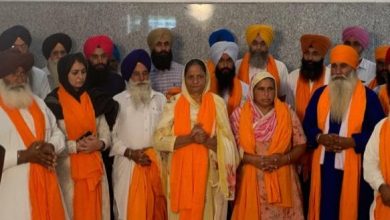Fifth IIT Delhi student suicide exposes casteism, institutional failures in India

New Delhi: The suicide of another IIT Delhi student, Varad Sanjay Nerkar, the fifth in the ongoing year, lays bare the complex interplay of factors contributing to these deaths, including harassment by supervisors, institutional failures amounting to “institutional murder” in some cases and pervasive casteism and inequality in India.
According to Kashmir Media Service, this tragic incident marks the fifth reported suicide from IITs this year, indicating a disturbing trend in India that cannot be overlooked. Nerkar’s case, like many others, underscores the complexities and pressures students face within these institutions. Allegations of harassment by supervisors and institutional challenges contribute to a toxic environment that impacts student well-being and mental health.
The term “institutional murder,” advocated by Delhi University Professor N. Sukumar, offers a more apt description of these incidents, highlighting the institutional failures and systemic issues that lead to such tragedies.
Casteism and inequality remain pervasive issues within IITs, as evidenced by various incidents of discrimination, casteist slurs, and the absence of functional SC/ST cells. The lack of diversity among faculty members and the exclusionary practices in admissions further exacerbate these problems.
The recommendations of the eight-member committee to scrap reservation policies in IITs and the alarming dropout rates among marginalized communities underscore the urgent need for systemic reforms and accountability measures.
Efforts such as collaborating with mental health care providers and updating anti-discrimination policies are steps in the right direction, but more comprehensive actions, including a social audit of these institutions and the formulation of anti-discrimination legislation like the proposed ‘Rohith Act,’ are necessary to address the root causes of caste-based discrimination and inequality in educational institutes.
The voices of Dalit student collectives advocating for change must be heard, and concerted efforts from both the government and academic institutions are essential to create inclusive and equitable environments within IITs and other educational institutions across India.








